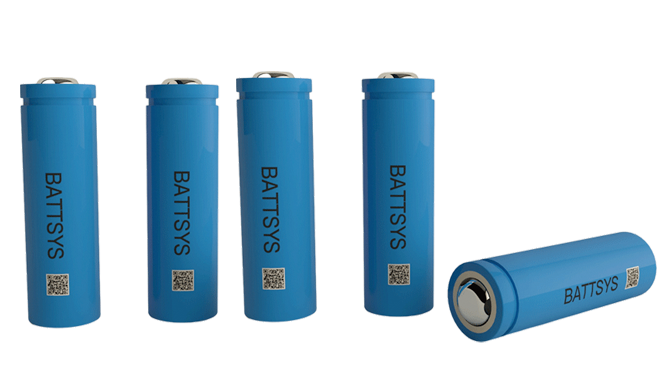How to choose 18650 batteries.
When choosing any product, it should be said that what suits you is the best. Regarding the customization of lithium batteries and even the selection of battery products, the following aspects are generally considered:
1. According to the actual usage purpose
Large scale energy storage: generally involves comprehensive factors such as environmental protection, service life, and footprint. It is generally recommended to use lithium iron phosphate battery cells, especially high-capacity lithium iron phosphate battery cells are more suitable;
Small scale energy storage: Generally, 26650 and 32650 lithium iron phosphate battery cells can be selected;

Small power: Generally, batteries similar to small energy storage can be chosen, or relatively safe ternary material system battery cells can be selected; Can balance the issues of volume to weight energy ratio;
Portable products: generally using
18650 lithium batteries; Polymer lithium cobalt oxide battery cells can be considered for those with high energy requirements.
Smart wearable products: Generally, it is better to use batteries with the same volume and low internal resistance, which can better utilize the design capacity and meet the usage requirements.
Special field batteries: Expert advice on battery selection is needed to determine which one is more reasonable.
2. Discharge rate
Ordinary products can be customized using lithium batteries with a standard formula, with a typical magnification not exceeding 0.5C.
When using a product for more than 1C, the product's lifespan and usage environment should generally be considered; Especially in the charging environment, customized lithium batteries typically require a reduced charging current at high and low temperatures. This means that for batteries that should be charged at less than 1C, a charging current of less than 0.2C is generally ideal at high and low temperatures.
We call customized lithium batteries with discharge exceeding 2C rate type batteries; Generally, a special formula is required to meet the usage requirements. If ordinary battery cells are used, it can lead to poor lifespan, safety hazards, and other adverse conditions.
Generally speaking, batteries with a rate exceeding 5C have a short lifespan, usually not exceeding 100 cycles. With further technological development, subsequent products may improve their lifespan, but other technical indicators are usually sacrificed at the same time. Model aircraft, drones, and special field batteries have high rate requirements. A battery with a relatively short instantaneous discharge time is not considered a high rate battery.
3. Temperature environment
Batteries are divided into three categories based on different temperature environments: high-temperature cells, low-temperature cells, and conventional cells; High temperature battery cells generally refer to storage at high temperatures without discharge. If there is a requirement for discharge, the product should not exceed 65 or 70 degrees Celsius. High temperature charging may also occur during discharge in high temperature environments, such as in the case of driving recorder batteries. At high temperatures, not only discharge occurs, but designers are not familiar with the battery and do not limit high-temperature charging. Therefore, the destructive effect of high-temperature charging on the battery is the most fatal. It also causes the bulging of such batteries and even other adverse conditions. If the motherboard can be designed with high-temperature protection, it can provide favorable usage conditions for customized lithium batteries. It is generally recommended to set the high-temperature discharge protection at 70 degrees Celsius; Setting the high-temperature charging protection at 55 degrees is more suitable. Although customized lithium batteries require charging conditions between 0 and 45 degrees, there is not much problem with low current charging in the range of 45 to 55 degrees, and it is generally considered safe.
4. Use the lower limit voltage of the platform
Generally refers to the lower limit voltage of electrical appliances. When selecting batteries, we fully consider the voltage range of electrical appliances, so that customized lithium batteries can be fully utilized. So when choosing a customized lithium battery, it is important to first understand which voltage range your product should use and select the correct voltage range for customization, so that the entire product design is more reasonable.
5. Cooperate with the charging system
The customized charging management system for lithium batteries is very important, and it is necessary to install a strict constant current and constant voltage charging mode. If charging is carried out beyond this mode, the product will not achieve good charging effect, ultimately affecting its service life and potentially causing safety issues. The design of customized lithium batteries is generally safe, and improper use and charging are high-risk areas for safety issues in lithium battery customization.
6. Is a high specific energy battery necessarily good
It is best to use high specific energy batteries in bulk only after actual testing of their lifespan; High specific energy batteries must be verified before they can be put into use. Any product requires this process, and the high specific energy batteries designed by battery manufacturers usually sacrifice other performance. No product is perfect, and if the sacrificed battery short board happens to be what you need, then the original design cannot be considered and needs to be redesigned and re verified.
7. Differences and Similarities between Energy Storage Batteries, Rate Batteries, and Conventional Batteries
Generally speaking, UPS energy storage batteries need to balance rate performance; UPS is mostly used as a temporary substitute for mains power for 5-10 minutes, which means that the battery generally needs to be discharged at a rate of 5-10 ° C to meet the usage requirements. We must not take it lightly when designing products because we usually do not use batteries.
Large scale energy storage generally does not require rate batteries.
Rate batteries are commonly found in model aircraft, drones, and gaming products. But generally don't expect to have a too long service life.
